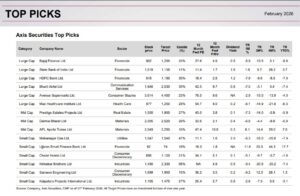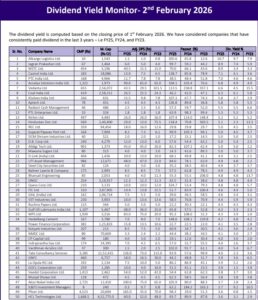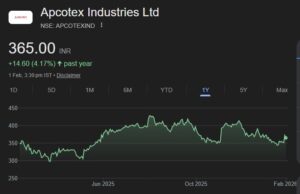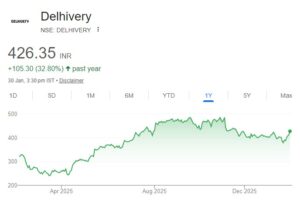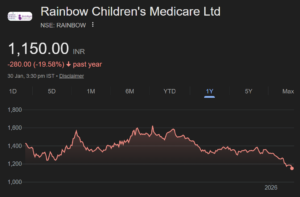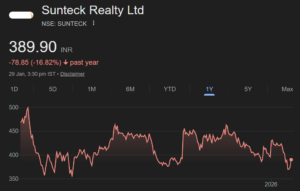
Repco Home:

Repco Home Finance Limited promoted by Repco Bank Ltd, is a dedicated Tier II and Tier III-cities focused housing finance company in India. Repco, since inception, has focused on under-served and under-penetrated areas. The average ticket size of the company’s loan is Rs 9.8 lakh. Repco has managed its costs well with a cost-to-income ratio of 17.3 per cent. Unlike its peers, Repco does not depend on intermediaries for loan origination.
This Book Reveals All Secrets on How To Find Undervalued Companies
Repco is well capitalized (25.5 per cent capital adequacy ratio) and will be able to sustain growth in excess of 20 per cent and RoAE in excess of 20 per cent in the coming years.
The stock is currently trading at attractive valuation of 2.3x FY15E book value.
Sobha Developers:
Sobha Developers is one of the most reputed developers known for its high quality construction, timely delivery and high corporate governance. Sobha Developers has a sizeable low cost land bank of 2500 acres, translating into a saleable area of 220 million square feet which it has acquired at a FSI cost of Rs 90 per square feet.
The current value of the land bank is 4x historical cost. Sobha also has a strong ongoing project pipeline of 15 msf in the real estate segment and 10.0 msf in the contractual business segment and has lined up 8 million square feet of new launches.
Elgi Equipments:
Elgi Equipments is the second largest air compressor player in India and is expected to be a major beneficiary on revival in the capex cycle in a longer run. This will have a positive impact on its market share and growth in domestic business.
Elgi Equipments’ ROCE is expected to improve to 20 per cent plus on better operating leverage in both domestic as well as international markets. Elgi’s consolidated EBITDA margins is expected to improve by 70 bps and 170 bps in FY14E and FY15E to 9.6 per cent and 11.3 per cent, respectively.
Elgi presently trades at PE of 12.3x FY15E EPS of Rs 6.7. In the past three years, the stock has traded in the forward PE band of 12-20x and leaves potential for upside from strong earnings growth.
Jammu and Kashmir Bank:
Jammu and Kashmir Bank’s low-cost CASA deposit improved from 37 per cent in FY07 to 39 per cent in Q2FY14, which enables it to maintain cost of deposits at ~6 per cent, which is a key indicator of the strength of its liability franchise.
Over the past few years, Jammu and Kashmir Bank has aggressively expanded its advances book outside the J&K region, reporting a growth in advances over FY12-13, considerably ahead of the industry average of 16 per cent. Jammu and Kashmir Bank’s advances are expected to grow at a CAGR of 20 per cent over FY12-14E.
Jammu and Kashmir Bank is an attractively-priced bank compared to its peers at 1.0x adjusted book and 4.8x FY15E earnings, delivering sustainable RoE of around 22 per cent and RoA of 1.5 per cent. Capital Adequacy Ratio (CAR) of 13.2 per cent (Basel-II), gross NPA of 1.7 per cent and PCR at 92 per cent make a strong case for the stock to trade at premium valuations compared to peer group valuations.
Motherson Sumi:
Motherson Sumi has significantly scaled up business (57 per cent CAGR growth in 10 years). Acquisitions and JVs at the right time and right valuations has turned Motherson Sumi around and created a global company with marquee clients while focusing on and maintaining dividend payout of 30 per cent plus.
New order wins in FY13 at SMP & SMR (Euro 6 bn) give Motherson Sumi sales visibility while margins expansion (SMR/SMP) over the last three quarters gives us comfort on Motherson Sumi’s effort to expand margins going forward.
Internal sourcing opportunities (Rs 5000 crores), tapping customers within business segments (SMR -SMP) and vertical integration (SMR) gives Motherson Sumi sustained sales and margin visibility over a longer period.
The stock is currently trading at 13.5x FY15E EPS.
ICICI Bank:
ICICI Bank’s loan book is expected to grow at 20 per cent CAGR over the next few years, driven by retail segment and working capital related corporate loans.
Asset quality has been improving steadily with gross and net NPAs at 3.5 per cent and 0.7 per cent, respectively. Restructuring book (1.6 per cent of loans) has been declining. No major restructuring in the future is seen.
ICICI Bank’s guidance of 20 per cent domestic advance growth, NIMs of 3.2 per cent for FY14, cost/income to be capped at 40 per cent, CASA at 38- 40 per cent and credit cost of 75 bps will sustain the RoA/RoE at similar levels. Adjusting for valuation of subsidiaries of Rs 245 per share, the stock trades at 1.4x FY15 adjusted book.
Larsen & Toubro:
L&T targets to achieve over 20 per cent RoE in the next 3-5 years by improving internal efficiency, optimal cash flow utilization and optimizing the current manufacturing base in ship-building, defense, heavy forgings and power equipment.
L&T witnessed strong order inflows of Rs 88,000 crore in FY13 with 25 per cent yoy growth and maintained strong inflows in H1FY14 with Rs 51700 cr up 27 per cent yoy). The management aims to achieve 20 per cent growth in order inflows in FY14 on a high base.
L&T is confident of achieving 15-17 per cent growth in standalone revenue in FY14 with stable margins. The current order backlog of Rs 1.76 lakh crore (2.9x FY13 standalone revenue) and expectation of strong order inflows in H2FY14 give revenue growth visibility.
Maruti Suzuki:
Peaking of competition is a key positive for Maruti Suzuki where as near term Rs vs. JPY is turning favorable for the company which will lead to margin improvement (as 25 per cent of sales are imports).
Increase in localization will aid for margin expansion in long term, thereby reducing currency risk. Expected demand recovery on the back of good monsoon, substantial rural focus, shift to petrol cars and new launches/refreshes augur well for Maruti Suzuki.
Maruti Suzuki’s multiple will expand to the range of 16x-21x 1-year forward earnings when growth returns and earnings up cycle begins.
